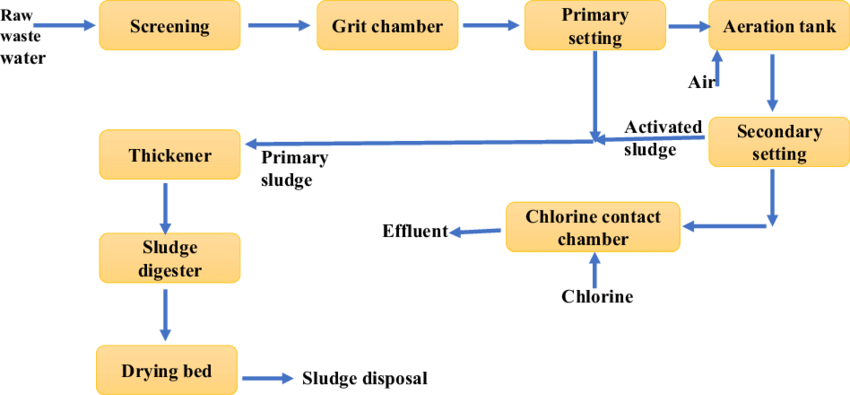Unknown Facts About Reclaim Waste
Unknown Facts About Reclaim Waste
Blog Article
The Facts About Reclaim Waste Revealed
Table of ContentsThe smart Trick of Reclaim Waste That Nobody is Talking AboutThe Facts About Reclaim Waste UncoveredHow Reclaim Waste can Save You Time, Stress, and Money.Top Guidelines Of Reclaim WasteThe Of Reclaim Waste
Domestic sewer waste refers to the waste and items from a property septic container. The appropriate management and disposal of residential sewer waste need fluid waste to be transferred to a sewage treatment plant where the correct approaches and equipment are used to detoxify and dispose of waste.
Business waste typically consists of potential dangers, such as flammable materials or a combination of liquid and solid waste products, and requires an advanced and comprehensive disposal procedure. The disposal of business waste generally involves the filtering of waste before transportation to make certain secure and proper disposal. Hazardous waste is produced from by-products and runoff of industrial procedures and manufacturing.
This kind of waste can not utilize the same sewage monitoring transport or procedures as septic or industrial liquids. The commercial waste administration procedure calls for the inspection and testing of fluid waste prior to it undertakes the disposal procedure (liquid waste disposal melbourne). Overflow waste is the fluid waste that originates from overflow and excess stormwater in very inhabited locations or cities
Runoff waste can trigger contamination and flooding otherwise handled appropriately. Discover more concerning sewer cleansing and waste monitoring. Guaranteeing appropriate waste management can stop catastrophes and decrease environmental injury. Both people in residential settings and professionals in commercial or production sectors can benefit from understanding the procedures and laws of liquid waste administration.
Reclaim Waste for Dummies
Contact PROS Solutions today to learn concerning our waste management and disposal solutions and the appropriate ways to look after the liquid waste you produce.
(https://www.easel.ly/browserEasel/14532007)This so-called 'wastewater' is not only an important source but, after treatment, will be released to our land, rivers or the sea. Used water from bathrooms, showers, baths, kitchen sinks, washings and industrial processes is known as wastewater.

water used to cool equipment or clean plant and tools). Stormwater, a type of wastewater, is drainage that moves from farming and metropolitan locations such as roofs, parks, yards, roadways, paths and gutters right into stormwater drains, after rain. Stormwater streams untreated directly to neighborhood creeks or rivers, at some point reaching the ocean.
The Only Guide to Reclaim Waste
In Queensland, a lot of wastewater is dealt with at sewer treatment plants. Wastewater is transferred from domestic or industrial websites through a system of drains and pump stations, referred to as sewage reticulation, to a sewer therapy plant. City governments develop, preserve and operate most sewer treatment plants. Operators are certified under the Environmental Protection Act 1994 to release cured wastewater at an appropriate ecological standard into rivers.
The Division of Natural Resources recommends city governments about managing, operating and preserving sewage systems and therapy plants. In unsewered areas, city governments may my site call for householders to install specific or house sewer treatment systems to deal with domestic wastewater from bathrooms, kitchen areas, restrooms and washings. The Department of Natural Resources authorizes making use of family systems when they are proven to be effective.
In some new class, treatment of some stormwater to get rid of trash, sand and gravel has actually begun making use of gross toxin traps. Wastewater therapy happens in 4 phases: Gets rid of strong matter.
Makes use of little living microorganisms knows as micro-organisms to break down and eliminate staying dissolved wastes and fine bits. Micro-organisms and wastes are included in the sludge.
Our Reclaim Waste PDFs
Nutrient elimination is not offered at all sewage therapy plants due to the fact that it requires expensive specialised tools. Clear fluid effluent created after treatment may still consist of disease-causing micro-organisms - liquid waste removal melbourne.

This normally suggests wastewater has to be dealt with or pollutants removed prior to it can be released to waterways. A lot of wastewater streams right into the sewage system. Under the Act, local governments provide authorizations and licences for eco pertinent tasks (Periods) involving wastewater launches that might have a local influence. The department administers authorizations and permits to ERAs involving wastewater releases that may have a regional or statewide influence.
3 Easy Facts About Reclaim Waste Shown
Or else, samples are considered laboratory analysis. Usually lots of examinations are needed to establish the degrees of each of the various pollutants such as oils, heavy metals and chemicals in water. Monitoring offers accurate details about water quality and can verify that licence problems are being met. The information obtained with surveillance gives the basis for making water top quality choices.
Report this page